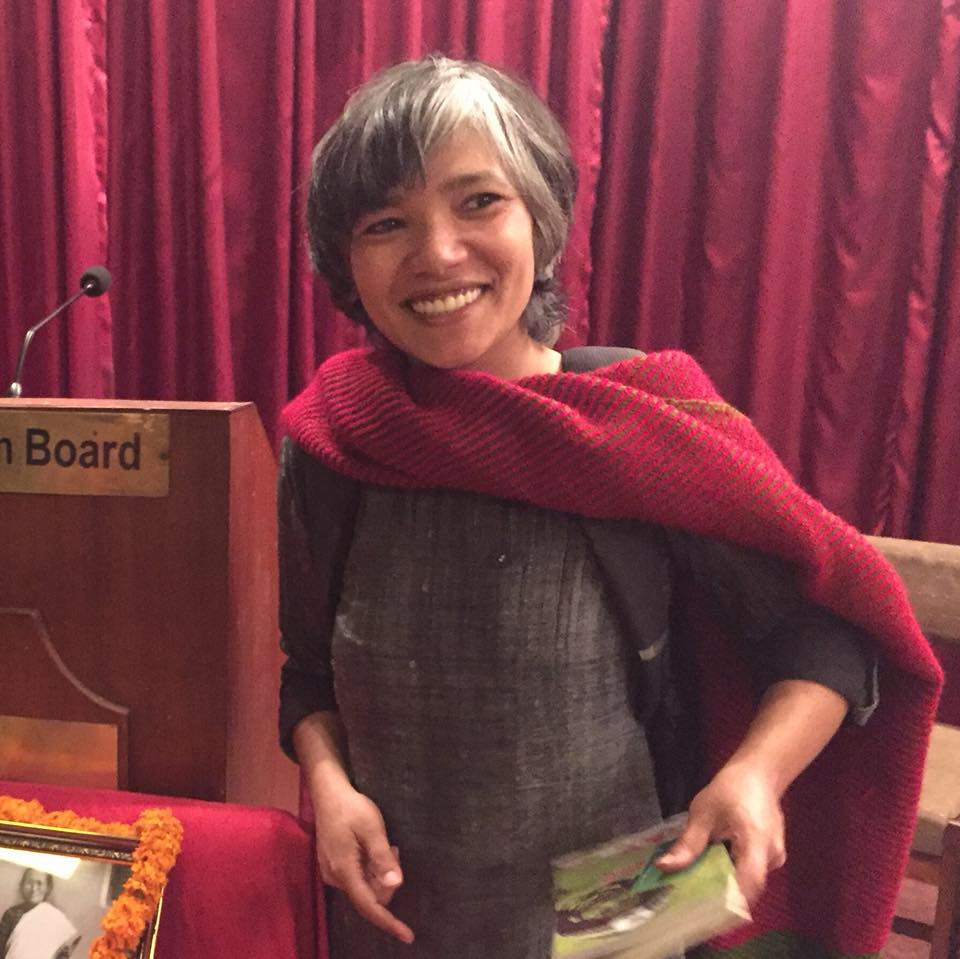"Women key to revolutionise Nepali politics"
"If a woman is a non-conformist and speaks about issues that are uncomfortable, she will surely be targeted," says Manushi Yami Bhattarai, who is a central committee member and secretary of Province 3 for Samajbadi Party, Nepal. She believes Nepal needs more women to participate in the political processes.
Women from all walks of life are running for political positions but the country still needs more of them debating needs and reforms, freely, without being targeted. Women's participation in the political world is important, globally, because it plays a big role in the functioning of the government. Women can be the game-changers of politics in Nepal.
Bhattarai, in her 30's, says in a male-dominated political arena, women still need to take proper advantage of the 33 percent seats in the parliament before asking for a 50 percent reservation because much remains to be done to ulitise the 33 percent to its utmost.
To gauge the gender gap, we need to know about the exact number of women leaders and voters. The Election Commission recently published the final list of 64 candidates contesting the upcoming by-elections for 52 vacant posts of people’s representatives, in which 55 are men and nine women.
According to Anuj Neupane, IT Undersecretary at the Election Commission, there are about 7,651,143 women who have registered themselves in the national voters' list. Many believe if women walk the political path, they will emphasise more on women issues. "Women are powerful enough to influence outcomes and actively shape policies for the betterment of Nepal," Bhattarai stated.
READ MORE: When women in politics meet women in media
For proper functioning of the Federal Democratic Republic of Nepal, unprecedentedly so, just like how people tend to support clan leaders, women support women, bringing their solidarity into the picture. "Women representation in politics matters but battling male entitlement is yet so difficult," added Bhattarai. Women's political participation has been stirring a little alarm, wherein many are fighting for rights of representation.
Bhattarai's education in India, she believes, exposed her to a different life than what she had experienced in Nepal, while pursuing her Master's degree in Tribhuvan University. She believes education is subsidised in India and is comparatively cheap. Bhattarai did her schooling, undergraduate studies, and PhD in India. She thinks that being a student in India opened her to a political understanding, India being a democratic country with various religions and practices being followed by masses.
Although, she does agree to her family background having its pros and cons, when asked what it is like, Bhattarai said it has never been easy. She spoke about how supportive her parents are of her career in politics, in a country where women's participation is comparatively less in the largely male-dominated field. Taking inspiration from her parents, she spoke about how they always encouraged her to become a better leader. She is the only child of her parents to enter the heat and dust of politics.
Bhattarai remembers when she was one of the student representatives in Kirtipur central campus of Tribhuvan University, she was mostly left to deal with women-centric issues. Perception should change, she says.
"Some powerful women politicians are abused and looked down upon. From students to national politics, people judge women leaders on how they speak and whether or not they are accepted by others. Many women are politically mobilised and organised but are also judged depending on their social status and class," Bhattarai asserted.
Meanwhile, women all over the country battle expectations while their gender is viewed as a barrier in contesting elections – one of the reasons experts believe they are less able to influence decision-making within their parties despite there being powerful women leaders in many of them.
However, Bhattarai points out how power can have a negative influence in politics, be it for males or females. "Power doesn’t necessarily mean money and power is associated with state and government being able to make better policies. But in the process, you become myopic and lured by this charm of being in power that you eventually change and become corrupt. Politicians don’t have a backup plan and they eventually become corrupt in the process because they are underpaid," added Bhattarai. "There are bodies to check misuse of power but they are themselves corrupt," she complained.
Society should be progressive but change could also be going backward, said Bhattarai. She said young women should step forward as change-makers in homes, relationships, offices adding that it’s time they contribute to bringing a good change in the country. Women of all generations should voice out their concerns in the country’s most critical issues.
Bhattarai opined that political elite women should work hand-in-hand without threatening minorities and create politically conscious movements by focusing on necessary progress for the country and own up to their leadership qualities. If women talk about uncomfortable issues, they aren't taken seriously. They are taken ‘seriously’ if the questions are limited to just women, said Bhattarai. She believes, for the country's sake, women need to work harder than men to be recognised. They also have to risk not being politically correct.
According to Bhattarai, a proportional representation based on population is important. There are very few people who read and decide what's good for them and the country as a whole. Most of them rely on male members in the family before casting their votes and there are only a few who vote with free will.
Bhattarai, who wants to revolutionise Nepali politics, believes women are the key.
This article is the first of five in the series "Nepali Women in Politics".






